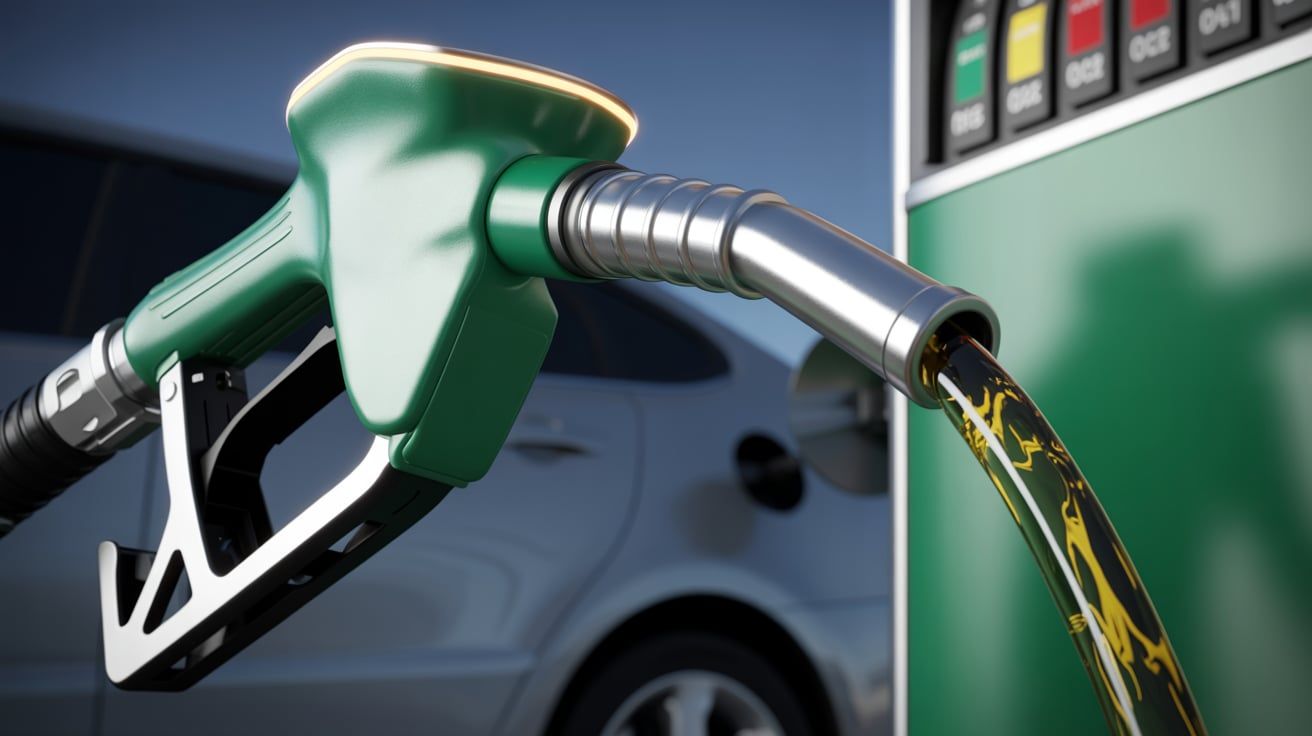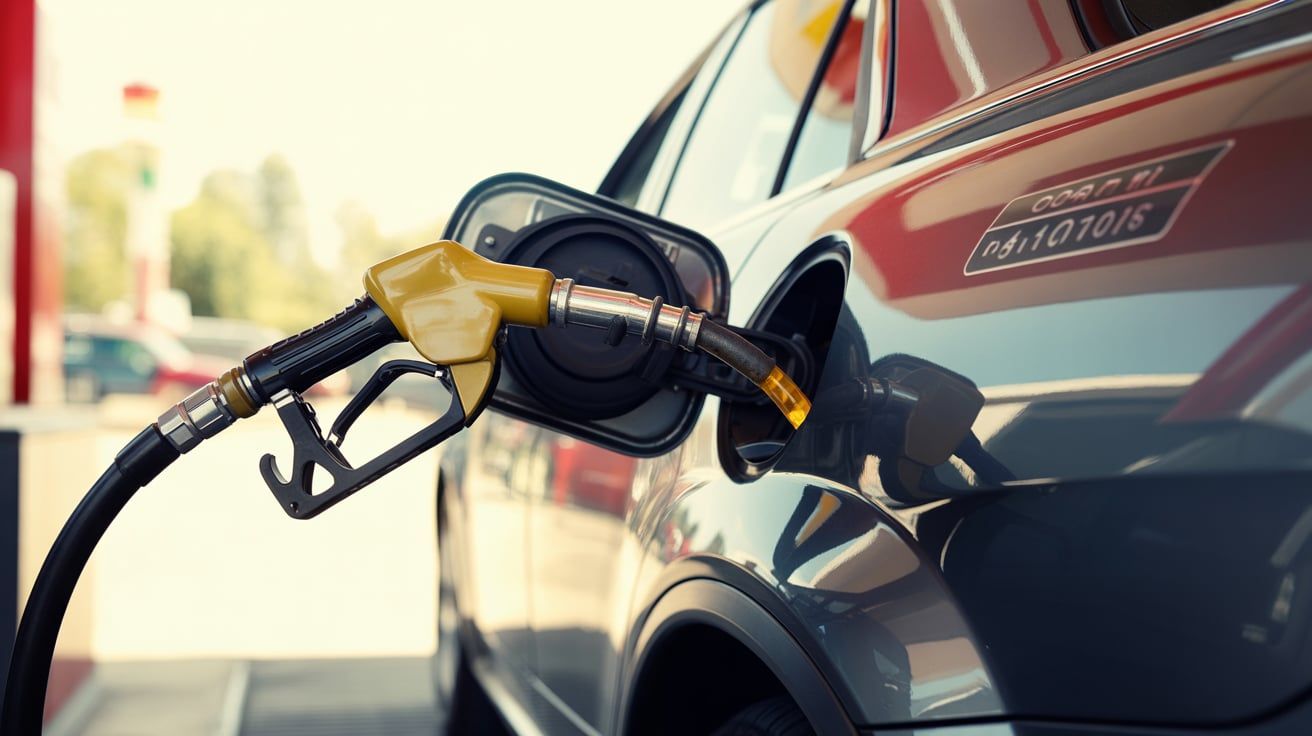
The Great Gas Grade Debate: Are You Throwing Money Away?
Have you ever stood at the gas pump, staring at the octane options, and wondered if you should splurge for the premium stuff? Maybe you’ve heard whispers that it boosts performance, cleans your engine, or even improves your gas mileage. It’s a tempting thought, especially when you’re thinking about the long-term health of your automotive investment. But the truth is, for the vast majority of cars on the road, premium gas is simply an unnecessary expense. Let’s dive into the world of octane ratings and figure out when that extra cost is actually worth it, and when it’s just lining the pockets of oil companies.
The world of transportation is constantly evolving, and with it, so are the fuels that power our vehicles. Understanding the nuances of gasoline grades is crucial for responsible car ownership and effective maintenance. Choosing the right fuel can impact your car’s performance, longevity, and, of course, your wallet. So, before you reach for that premium nozzle, let’s explore the facts and dispel some common myths.
Understanding Octane: What Does It Really Mean?
Octane rating is a measure of a fuel’s ability to resist “knocking” or “pinging” during combustion. Knocking occurs when the air-fuel mixture in your engine ignites prematurely, causing a harsh, metallic sound and potentially damaging your engine over time. Higher octane fuels are more resistant to this premature detonation. Think of it like this: octane is a measure of how stable the fuel is under pressure and heat. The higher the number, the more stable it is.
Regular gasoline typically has an octane rating of 87, while premium gas usually ranges from 91 to 93. The key takeaway here is that octane rating doesn’t equate to more power or better fuel economy in itself. It simply indicates the fuel’s resistance to knocking. If your car’s engine is designed to run on regular gas, using premium won’t magically unlock hidden horsepower. It’s like buying a more expensive type of water – it’s still just water, and it won’t hydrate you any better.
The Manufacturer’s Recommendation: Your Car’s Fuel Bible
The most important factor in determining whether your car needs premium gas is the manufacturer’s recommendation. This information can be found in your owner’s manual, often on the inside of the fuel filler door, or sometimes even on the fuel gauge itself. If your car’s manufacturer recommends regular gas, using premium is almost certainly a waste of money. Your engine is designed to operate optimally with that specific octane level, and using a higher octane fuel won’t provide any tangible benefits.
However, if your car *requires* premium gas, then you absolutely need to use it. These vehicles typically have high-performance engines with higher compression ratios, which are more susceptible to knocking. Using regular gas in a car that requires premium can lead to engine damage over time, potentially costing you far more in repairs than you would save on fuel. Think of it as preventative automotive maintenance – using the right fuel is crucial for the long-term health of your engine.
High-Performance Engines: Where Premium Gas Makes a Difference
Certain high-performance vehicles, particularly those with turbocharged or supercharged engines, are specifically designed to run on premium gas. These engines operate at higher compression ratios and generate more heat, making them more prone to knocking. Premium gas helps to prevent this premature detonation, ensuring optimal performance and preventing potential engine damage. These engines are finely tuned to extract maximum power and efficiency from the higher octane fuel.
For example, many sports cars, luxury vehicles, and certain performance-oriented SUVs require premium gas. These vehicles are engineered to deliver a specific level of performance, and using regular gas can compromise that performance and potentially damage the engine. Ignoring the manufacturer’s recommendation in these cases is a risky gamble that could lead to costly repairs down the road. It’s a crucial aspect of responsible driving and vehicle ownership.
The Myth of Engine Cleaning: Does Premium Gas Keep Your Engine Cleaner?
One common misconception is that premium gas contains more detergents and additives that clean your engine. While some premium gas brands may contain slightly more detergents than regular gas, the difference is often negligible. Most modern gasoline, regardless of octane rating, contains sufficient detergents to keep your engine clean and prevent the buildup of deposits. The Environmental Protection Agency (EPA) mandates minimum detergent levels for all gasoline sold in the United States.
If you’re concerned about engine cleaning, a better approach is to use a dedicated fuel injector cleaner periodically. These products are specifically formulated to remove deposits and improve engine performance. Adding a fuel injector cleaner every few thousand miles can be a more effective and cost-efficient way to maintain your engine’s cleanliness than consistently using premium gas. This is a key part of preventative automotive maintenance that can extend the life of your vehicle.
When to Consider Premium Gas Even If It’s Not Required
While most cars don’t benefit from premium gas, there are a few specific situations where it might be worth considering, even if your car doesn’t require it. If you notice your car is experiencing knocking or pinging, even when using the recommended fuel, switching to premium gas might help to eliminate the problem. This could be due to factors such as altitude, temperature, or the quality of the regular gas available in your area. However, if the knocking persists, it’s essential to have your car checked by a mechanic, as it could indicate a more serious underlying issue.
Another scenario is if you’re planning on towing heavy loads or driving in extreme conditions. Under these circumstances, your engine may be working harder than usual, and premium gas could provide a slight performance boost and help to prevent knocking. However, it’s important to note that the benefits in these situations are often minimal, and you’re unlikely to see a significant improvement in fuel economy or performance. Always prioritize the manufacturer’s recommendation and consult with a mechanic if you have any concerns.
The Cost-Benefit Analysis: Is Premium Gas Worth the Extra Expense?
Let’s face it: premium gas is significantly more expensive than regular gas. Over time, that extra cost can add up to a substantial amount of money. If your car doesn’t require premium gas, you’re essentially throwing that money away. Consider this: if you fill up your tank once a week and premium gas costs 50 cents more per gallon, you’re spending an extra $26 per month, or $312 per year. That’s money that could be used for other automotive maintenance, repairs, or even a well-deserved vacation!
Before you decide to switch to premium gas, carefully weigh the potential benefits against the added cost. If your car doesn’t require it, the benefits are likely to be minimal, if any. In most cases, you’re better off sticking with the manufacturer’s recommendation and saving your money. Responsible transportation involves making informed decisions about fuel choices, and understanding the cost-benefit analysis is crucial for making the right choice for your vehicle and your wallet.
Making the Smart Choice: Fueling Your Car and Your Wallet
Ultimately, the decision of whether or not to use premium gas comes down to understanding your car’s needs and the manufacturer’s recommendations. For the vast majority of vehicles on the road, regular gas is perfectly adequate and provides optimal performance. Using premium gas in these cars is simply an unnecessary expense that offers no tangible benefits. However, if your car requires premium gas, it’s essential to use it to prevent engine damage and ensure optimal performance. This is a critical aspect of responsible car ownership and preventative automotive maintenance.
So, the next time you’re at the gas pump, take a moment to consider your car’s needs and the manufacturer’s recommendations. Don’t fall for the marketing hype or the allure of perceived performance gains. Make an informed decision based on facts and save your money for something that will actually benefit your car and your wallet. Remember, smart driving involves not just getting from point A to point B, but also making informed choices that protect your investment and keep you on the road for years to come. Consult your owner’s manual, talk to your mechanic, and make the fuel choice that’s right for you and your vehicle. Happy driving!

